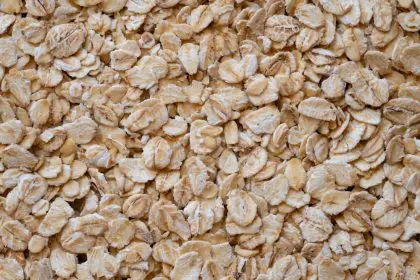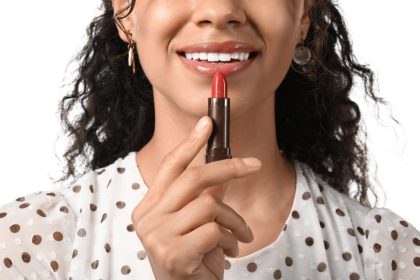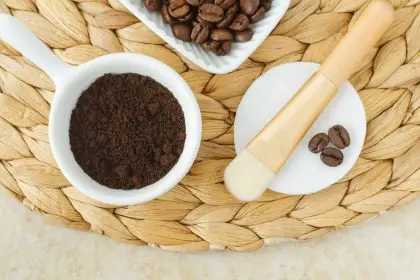In the ever-evolving world of skincare, new ingredients frequently promise to revolutionize beauty routines. One of the latest compounds generating buzz is hypochlorous acid (HOCl). Known for its antimicrobial and soothing properties, this gentle yet powerful ingredient is becoming a go-to solution for those with sensitive or acne-prone skin. But is it a true game-changer or simply another trend? Let’s dive deeper into its science-backed benefits and practical uses.
What is Hypochlorous acid?
Hypochlorous acid is a naturally occurring compound produced by the body’s white blood cells to fight infections and reduce inflammation. It plays a critical role in the immune response, helping to combat harmful pathogens and promote healing.
In skincare, hypochlorous acid acts as a mild antiseptic and anti-inflammatory agent. It effectively eliminates bacteria, viruses, and fungi while calming redness and irritation. According to Dr. Mona Gohara, a board-certified dermatologist, this compound cleanses and soothes the skin without disrupting its natural balance. Additionally, Dr. Azadeh Shirazi highlights its ability to support the skin’s natural healing processes, making it suitable even for highly sensitive skin.
Notably, it is environmentally friendly, as it does not rely on synthetic chemicals. This eco-conscious aspect adds to its appeal in clean beauty circles.
Benefits of Hypochlorous acid for skin
Hypochlorous acid offers a range of benefits, making it a versatile addition to skincare routines. Below are some of its most notable advantages:
1. Anti-inflammatory properties
Hypochlorous acid excels at reducing redness and irritation, making it ideal for managing conditions like acne, eczema, and rosacea. Its calming effects help soothe inflamed skin, providing relief without harsh side effects.
For individuals with reactive skin, hypochlorous acid can act as a gentle solution to reduce flare-ups and promote a more even complexion.
2. Antibacterial and antimicrobial action
One of hypochlorous acid’s standout features is its ability to kill harmful bacteria, viruses, and fungi. Unlike traditional antiseptics that may irritate the skin, hypochlorous acid offers a gentler approach, making it ideal for preventing or managing acne breakouts.
By eliminating acne-causing bacteria without stripping the skin, it helps maintain a healthy balance, reducing the risk of future blemishes.
3. Healing support
Hypochlorous acid mimics the body’s natural healing response, accelerating recovery from minor cuts, wounds, and irritations. Dr. Shirazi emphasizes its role in supporting skin repair, especially for those with compromised barriers due to conditions like eczema.
Its gentle nature allows it to promote healing without causing further irritation, making it a valuable tool in wound care and post-treatment recovery.
How to use Hypochlorous acid in your skincare routine
It is typically available in sprays and cleansers, offering multiple ways to incorporate it into your regimen. Dr. Carmen Castilla suggests using a hypochlorous acid spray as a toner after cleansing or as a spot treatment for blemishes.
Here are some practical applications:
- Facial spray: After cleansing, mist a hypochlorous acid spray over the face for a calming and hydrating effect. It can also be used throughout the day to refresh and soothe the skin.
- Spot treatment: Apply hypochlorous acid directly to pimples or irritated areas to reduce inflammation and prevent bacterial growth.
- Wound care: Use it on minor cuts and abrasions to promote healing and prevent infection.
For best results, apply before heavier products like moisturizers to ensure maximum absorption. Avoid combining it with strong exfoliants, as this may increase the risk of irritation.
Potential side effects and considerations
While hypochlorous acid is generally safe for all skin types, overuse can disrupt the skin’s natural balance. Dr. Shirazi advises choosing products with appropriate concentrations for specific needs. Most people experience no adverse effects, but those with extremely sensitive skin should perform a patch test before widespread application.
Additionally, hypochlorous acid products can degrade over time, losing their potency. To maintain effectiveness:
- Store products in cool, dark places.
- Use them within 12 months of opening.
By following these guidelines, you can ensure that your hypochlorous acid products remain effective and safe to use.
Is it safe for skin?
Yes, hypochlorous acid is widely considered safe for all skin types. Its gentle nature makes it an excellent choice for individuals with sensitive or problematic skin. Unlike alcohol-based products, hypochlorous acid does not cause dryness or irritation. Additionally, it is less harsh than benzoyl peroxide, another common acne treatment.
Dr. Shirazi highlights its safety profile, emphasizing that it is particularly beneficial for those with conditions that compromise the skin barrier, such as eczema or acne. When used correctly, hypochlorous acid can help support healthier, calmer skin without unwanted side effects.
Is it worth the hype?
Hypochlorous acid is more than just a passing trend in the skincare world. Its antimicrobial, anti-inflammatory, and healing properties make it a valuable addition to routines aimed at managing sensitive or acne-prone skin.
Whether you’re looking to calm irritation, prevent breakouts, or support the skin’s natural healing process, hypochlorous acid offers a gentle yet effective solution. However, as with any skincare product, it’s essential to choose formulations that suit your specific needs and consult a dermatologist if you have any concerns.
By incorporating hypochlorous acid into your routine, you can harness its soothing and cleansing benefits, helping you achieve a healthier, more balanced complexion.











